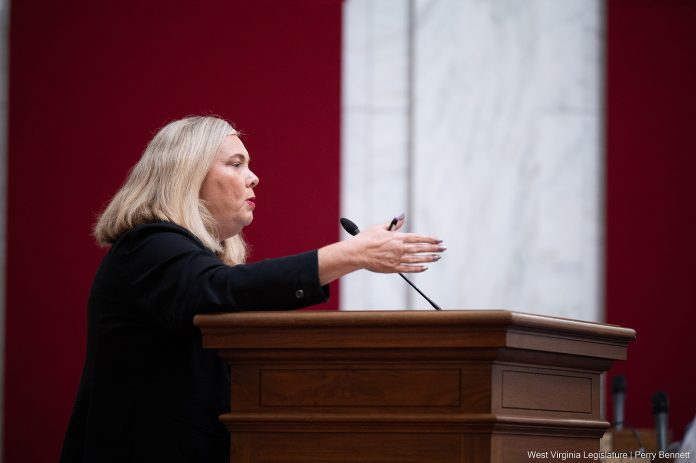Cindy Beane, commissioner for the West Virginia Bureau for Medical Services, presented to the Joint Standing Committee on Finance during interim legislative meetings at the Capitol Monday morning.
Beane discussed the significant changes West Virginia’s Medicaid system faces in the wake of the recent passage of the “Big, Beautiful Bill Act.” The Medicaid system is a healthcare program that is jointly funded by the federal government and states. The most significant change includes the implementation of a work requirement structure.
West Virginia’s Medicaid program costs roughly $5.5 billion annually, with the federal government covering about 80 percent that cost, according to Beane. The overall Medicaid allocation funds a significant portion of West Virginia’s healthcare system and provides a jolt to the state’s economy.
About 504,000 people are enrolled in Medicaid in West Virginia, Beane said. She noted that roughly 160,000 of those are in the Medicaid expansion population.
The federal legislation institutes more rigorous requirements for Medicaid that are anticipated to cause millions of people to drop their Medicaid coverage nationwide.
The main new provision requires a minimum of 80 hours per month of work, education or volunteer service for able-bodied adults without dependents. The legislation refers to this as “community engagement requirements.”
Lawmakers questioned the effect of these work requirements on West Virginia’s enrollment. Beane said her agency is still trying to figure that out. She noted that from an early evaluation she knows 60 percent of the Medicaid population in West Virginia already has some earned income, but she doesn’t yet know if they’re meeting the threshold of the 80 hours.
“Those are the kinds of things that we’re kind of trying to figure out how many people will be directly impacted that maybe currently are not in the workforce, that we need to encourage to get into the workforce in order to stay on the rolls if they choose to do so,” Beane said.
She did say she thinks it’s safe to say the state will have some level of enrollment decline.
“I do anticipate that we will see some of our enrollment go down for the community engagement,” Beane said. “I don’t have an exact number on that yet.”
The new federal legislation requires those with Medicaid coverage to verify their eligibility to be in the program twice a year, rather than just once, as was the practice previously. The bill also adds a more rigorous income verification for those who enroll in the Affordable Care Act’s health care coverage.
Beane informed lawmakers that West Virginia is participating in a pilot program with seven other states to explore technology to enable Medicaid recipients who are working to report work hours efficiently through a “no touch solution so that people aren’t constantly having to report their hours.”
Beane noted that the new work requirements have prompted the most questions to her office.

